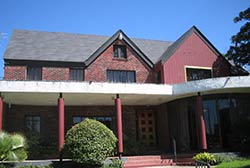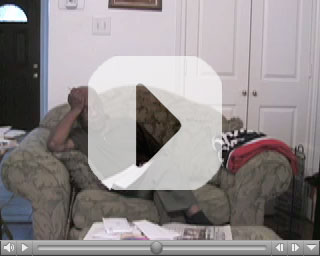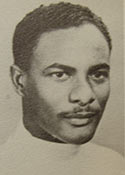Breaking the Color Barrier – the First Wave (1927-1954, Section 13)
At this time, some six years before the famous U.S. Supreme Court ruling in Brown v. Board of Education in 1954,a few pioneers began to break the color barrier at southern medical schools. Dr. Edith Irby Jones integrated the University of Arkansas Medical School in 1948. Residents of her hometown, Hot Springs, Arkansas, took up a collection to cover her $500 tuition. The daughter of a working-class family, Dr. Jones was unsophisticated about banking at the time. She arrived at school and paid her tuition with the nickels, dimes, and dollar bills her neighbors had donated. The publishers of The State Press, a black newspaper in Little Rock, paid for her room and board.
While Dr. Jones has remained humble about her groundbreaking role, it is hard to overstate the importance of challenging the color barrier at southern schools. Dr. Jones received national attention when Life magazine, one of the most popular periodicals in the United States, featured an article about her admission to the medical school. The University of Arkansas received letters from across the country, most of which celebrated her admission. NAACP mentioned her success in its pamphlets.
Dr. Jones remembers that many of the other students at the University of Arkansas were returning veterans who were more eager to get on with their medical careers than engage in racial politics. While she still encountered the inequities of Jim Crow, such as riding on segregated buses, Dr. Jones felt as much pressure being a woman in medicine.
Dr. Jones later observed, “most of the time, for women to really get the recognition, they [had] to do twice as much, be even more diligent than [their] male counterpart.” 1 Many male doctors wrongly believed that women would abandon their careers once they married and had children and thus resented them for supposedly taking the place of men. Consequently, Dr. Jones became close to the other two women in her class.
Following medical school and several years of practice in Hot Springs, Dr. Jones moved to Houston to complete a residency. She was one of only three African-American women physicians practicing in Houston and the only African-American resident at Baylor University College of Medicine at the time. When she arrived in Houston, many of its health facilities remained segregated, but much of her residency was completed at the VA hospital which, since 1948, had been integrated. In 1948, President Truman issued executive order 9981 requiring the integration of the U.S. armed forces and all of its related facilities including the Veterans Administration hospitals.
Dr. Jones was only the second African-American physician admitted to the internal medicine residency at Baylor. Dr. John Madison preceded her by some seven years and became her mentor after she arrived in Houston. Upon completing her residency in 1962, she opened a private practice in Houston’s Third Ward, where she still works today.
Following Dr. Edith Irby Jones’s bold step at the University of Arkansas in 1948, other southern schools gradually dropped bars to professional education. The following year, the University of Texas Medical Branch at Galveston (UTMB) admitted its first black student, Dr. Herman Aladdin Barnett III . A native of Austin, Texas, Dr. Barnett became a Tuskegee Airman, but he finished his training in August 1945 and never saw combat. Following his discharge in 1946, Dr. Barnett entered college and three years later began medical school at UTMB.
Barnett’s accomplishments inspired other African-Americans who followed him to UTMB. Dr. Oliver C. Hunter, Jr., remembered Barnett’s influence on him a decade later:
After his medical school graduation in 1953, Dr. Barnett completed his internship and surgical residency at the UTMB hospitals. In 1968 he completed a second residency in anesthesiology at St. Joseph’s hospital. Ultimately, he affiliated with a variety of hospitals in Houston and Galveston including Hermann Hospital, Riverside General Hospital, St. Elizabeth’s Hospital, Lockwood Hospital, Galveston County Memorial Hospital, UTMB Hospitals, and St. Joseph Hospital.
As a member of the Houston Medical Forum, National Medical Association, Texas Medical Association, Lone Star State Medical Association, and the Harris County Medical Society, Dr. Barnett remained a community leader. After his death in 1973, UTMB created the Herman Barnett Memorial Award to honor six outstanding graduating students in anesthesiology and surgery each year.
Citations
- Dr. Edith Irby Jones, Interview by Leigh Cutler, Lauren Kerr, and Yimei Zhang, March 10, 2005, tape recording.
- Dr. Oliver Hunter, Jr., interview 2008, video recording.




